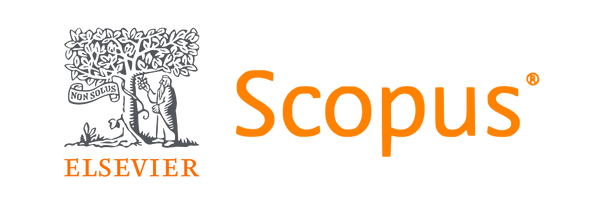The Effectiveness of PNPM-SPP Program on Society Welfare: Islamic Economic Perspective
Abstract
Economic activities in rural areas are still dominated by micro business sectors. The majority of business agents are women who are always constrained by capital in economic activities. Though capital is one of the most important elements in moving the economy in a rural area. Limited capital can prevent creativity in business development. Looking at the facts, people should be able to get capital easily. Program Nasional Pemberdayaan Masyarakat is a national integrated poverty reduction program and is a community empowerment program launched by the government. PNPM in one of its programs facilitates the community in Obtaining additional capital by providing a capital loan for women who have a business, namely Simpan Pinjam Perempuan (SPP) program. This study aims to determine the effectiveness of Simpan Pinjam Perempuan (SPP) program and the Islamic economic perspective of the SPP program in an effort to prosper the Cantuk Banyuwangi community. The variables used to measure the effectiveness of the SPP program are the variables of achieving goals, integration, real change, and satisfaction. Program effectiveness is the dependent variable. The study was conducted on 80 SPP lenders. The selection of respondents was by Sampling Cluster method. As for the data processing, the data was done by quantitative statistical analysis method and used a qualitative descriptive method for analyzing qualitative analysis data. Based on the research, the results showed that the effectiveness of the SPP program in Cantuk Banyuwangi Village was very effective with a percentage of 93.3%.
Keywords
Full Text:
PDFReferences
Abbas, K., & Shirazi, N. (2015). The Key Players' Perception on The Role of Islamic Microfinance in Poverty Alleviation The Case of Pakistan. Journal of Islamic Accounting and Business Research, 6(2) , 244-267.
Adeyemi, A. A., al-Jaafreh, A. S., & Osman, M. A. (2015). Islamic Microfinance and MSMEs Development in Saudi Arabia : A Qualitative Inquiry. International Journal of Education and Research , 59-72.
Amalia, E. (2009). Keadilan Distributif dalam Ekonomi Islam; Penguatan Peran LKM dan UKM di Indonesia. Jakarta: PT Rajawali Pers.
Anantanyu, S. (2011). Kelembagaan Petani: Peran dan Strategi Pengembangan Kapasitasnya 7(2). SEPA, 7 (2), 102-109.
Antonio, S. (2008). Bank Syariah dari Praktek dan Teori. Jakarta: Gema Insani.
Astuti, R. (2016). Strategi Pengembangan Potensi Usaha Mikro Kecil dan Menengah (UMKM) dengan Dukungan Kucuran Kredit. Industria : Jurnal Teknologi dan Manajemen Agroindustri , 84-95.
Awami, S. N. (2009). Peranan Lembaga Keuangan Mikro dan Kontribusi Kredit terhadap Pendapatan Kotor UKM Rumah Tangga Setelah menjadi Kreditur (Studi Kasus BMT MUAMALAT). MEDIAGRO, 5(2), 1-11.
Aysan, A. F.; Disli, M., Ng. A.; Ozturk, H. (2015). Is small the new big : Islamic banking for SMEs in Turkey. Diambil kembali dari http://doi.org/10.1016/j.econmod.2015.12.031
Azis, A., & Rusland, A. (2009). Peranan Bank Indonesia di dalam mendukung Pengembangan Usaha Mikro, Kecil, dan Menengah. Dalam B. Indonesia, Seri Kebansentralan (Vol. 21st ed. ). Jakarta: Pusat Pendidikan dan Studi Kebansentralan (PPSK) Bank Indonesia (BI).
Elasrag, H. (t.thn.). Islamic Finance for SMES . Diambil kembali dari http://doi.org/10.1453/jest.v3i3.1009
Huda, A. (2012). The Development of Islamic Financing Scheme for SMEs in a Developing Country : The Indonesian Case. 52, 179-186. http://doi.org/10.1016/j.sbspro.2012.09.454.
Kharisma, B. (2014). Good Governance sebagai Suatu Konsep dan Mengapa Penting dalam Sektor Publik dan Swasta : Suatu Pendekatan Ekonomi Kelembagaan. Jurnal Buletin Studi Ekonomi,, 19(1), 1-34.
Kementerian Perdagangan. (2013). Analisis Peran Lembaga Pembiayaan dalam Pengembangan UMKM. Jakarta: Pusat Kebijakan Perdagangan dalam Negeri Badan Pengkajian dan Pengembangan Kebijakan Perdaganagn Kementerian Perdagangan.
Pristiyanto, Bintoro, M. H., & Soekarto, S. T. (2015). Strategi Pengembangan Koperasi Jasa Keuangan Syariah dalam Pembiayaan Usaha Mikro di Kecamatan Tunjungsari Sumedang. Jurnal Manajemen, 8 (1), 27-35.
Sholahuddin, M. (2013). Tantangan Perbankan Syariah dalam Perananya Mengembangkan UMKM. Seminar Nasional dan Call for Papers SANCALL, (hal. 496-500). Surakarta.
Sriyana, J. (2013). Peran BMT dalam Mengatasi Kemiskinan di Kabupaten Bantul. INFERENSI, Jurnal Penelitian Sosial Keagamaan , 29-50.
Sudarsono, H. (2005). Bank dan Lembaga Keuangan Syariah. Yogyakarta: Ekonisia.
Sugiyono. (2012). Metode Penelitian Kuantitatif Kualitatif dan R& D. Bandung: Alfabeta.
DOI: http://dx.doi.org/10.30984/jis.v17i1.641
Article Metrics
Abstract view : 2134 timesPDF - 746 times
Refbacks
- There are currently no refbacks.
Copyright (c) 2019 Jurnal Ilmiah Al-Syir'ah

This work is licensed under a Creative Commons Attribution-NonCommercial 4.0 International License.
Rumah Jurnal IAIN Manado
Jl. Dr. S.H. Sarundajang, Kawasan Ringroad I, Malendeng Manado Kode Pos 95128, Sulawesi Utara, Indonesia.

All publication by Jurnal Ilmiah Al-Syir'ah are licensed under a Creative Commons Attribution 4.0 International licence.
Jurnal Ilmiah Al-Syir’ah, ISSN 1693-4202 (Print), ISSN 2528-0368 (Online)






